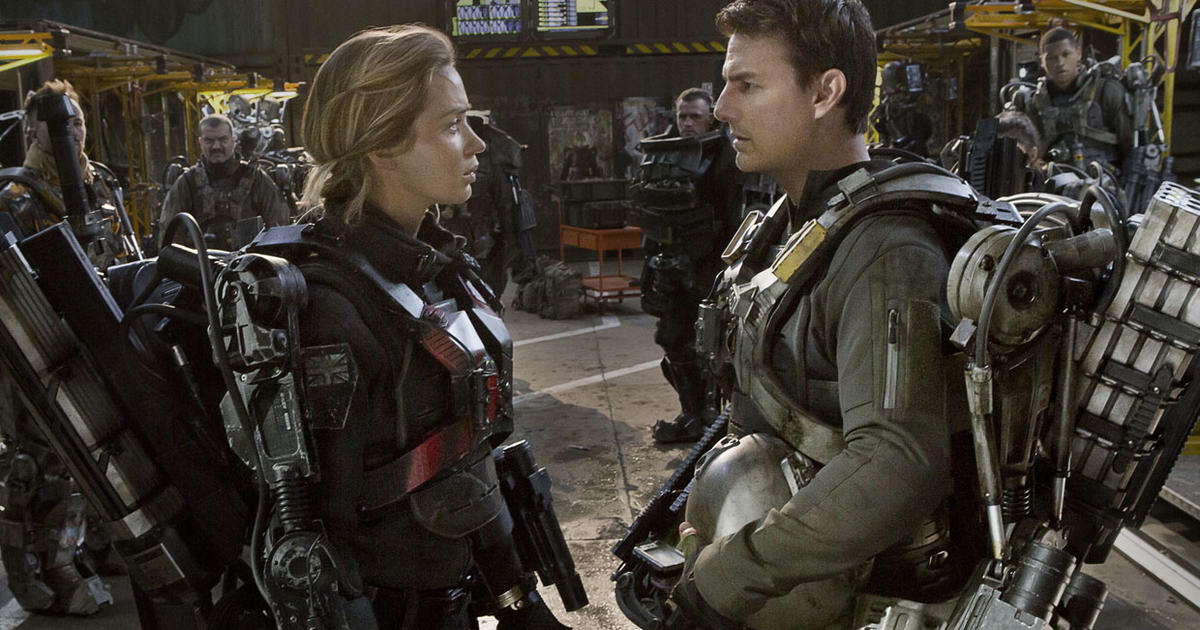

He was always likable, sometimes perfect in the right role, but age has deepened him by bringing out his vulnerability. By the end he's nearly unrecognizable from the man we met in the opening.Ĭruise is hugely appealing here, not just in the early scenes opposite Gleeson in which he's in Tony Curtis mode-he's always fantastic playing a smooth-talking manipulator who's sweating on the inside-but later, where he exhibits the sort of rock-solid super-competence and unforced decency that Randolph Scott brought to Budd Boetticher's westerns. He changes as the story tells and retells and retells itself.
#EDGE OF TOMORROW REVIEW HOW TO#
It is especially right for Cruise, in that Cage starts out as a Jerry Maguire-type who'll say or do anything to preserve his comfort, then learns through hard (lethal) experience how to be a good soldier and a good man. She can, however, offer guidance (and a key bit of information that defines his predicament), and speed up the learning curve by shooting him in the head whenever it becomes obvious that they're going down a wrong road that'll lead to the same fatal outcome.Īlthough the film's advertising would never dare suggest such a thing, for fear of driving off viewers who just want the bang bang-boom boom, Cage is a complex and demanding role for any actor. She recognizes his maddening condition but can no longer share in it. Rita has experienced the same temporal dislocation that Cage is now experiencing, but at a certain point it stopped. York type who's great for armed forces morale in addition to being an exceptionally gifted killer.

They're oblivious to the way in which Cage, like "Slaughterhouse Five" hero Billy Pilgrim, has come unstuck in time.Ĭage's only allies are a scientist ( Noah Taylor) who believes the creatures are beating humanity through their mastery of time, and Rita Vrataski ( Emily Blunt), an Audie Murphy or Sgt. He always knows he's been here before, that he met this person, said that thing, did that thing, made a wrong choice and died. Then he dies again and starts over again. No amount of protest by Cage can halt this assignment, and soon after he joins his unit and learns the rudiments of wearing combat armor (this is one of those science fiction films in which soldiers wear clumping bionic suits festooned with machine guns and other weapons) he dies on the battlefield. When Cage meets the general in charge of that part of the world's forces, he's told he's being sent right into this movie's version of D-Day and is to report for duty immediately. The landscapes evoke color newsreel footage from World War II, and much of the combat seems lifted from that era as well.

Whole cities have been reduced to ash heaps.
#EDGE OF TOMORROW REVIEW MOVIE#
The rest of the movie may not be his dream per se, but at various points it sure feels as though it is. The film begins with Cage en route to European command headquarters in London, waking up in the belly of a transport chopper. He's never seen combat yet inexplicably finds himself thrown into the middle of a ferocious battle that will decide the outcome of the war. Cage is a surprising choice for the role of hero. Tom Cruise, who seems to be spending his fifties saving humanity, plays Major William Cage, an Army public relations officer.


 0 kommentar(er)
0 kommentar(er)
